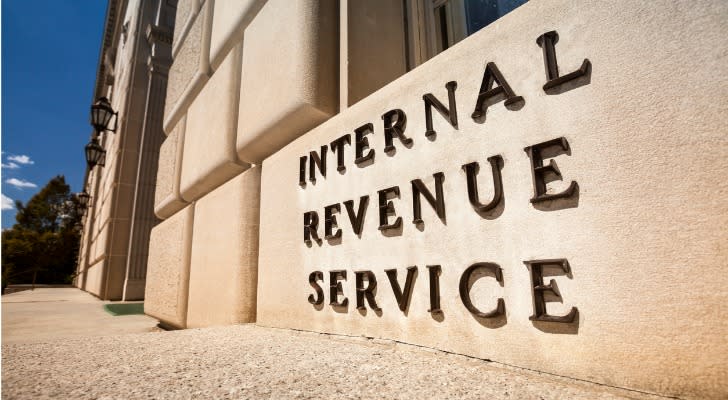I’m Selling My Home and Netting $750k to Downsize for Retirement. Do I Have to Pay Capital Gains Taxes?

Suppose you sell your primary home and make a $750,000 profit. Will you owe capital gains tax on that profit? The short answer is yes. Depending on a handful of factors, you may owe tens of thousands of dollars to over a hundred thousand dollars. Your exact tax liability could vary drastically, so knowing what goes into this calculation and how to do it yourself is important.
If you need additional help managing your tax liability, consider speaking with a financial advisor.
How the IRS Taxes Your Profit On Home Sales
The IRS taxes a home sale as gains or losses on an investment. You pay capital gains rates if you owned the property for one year or more, and earned income rates if you’ve owned the home for less than 12 months.
You only pay taxes on your profits from this sale. This is calculated as any other investment: total sale price minus the asset’s cost basis. With a home, the IRS allows you to include improvements and some transaction costs in the adjusted cost basis. Among other things, you can include:
-
The initial purchase price of the home
-
Value added from interior remodeling, such as redoing your kitchen
-
Value added from internal updates, such as improving the furnace or windows
-
External additions, such as adding a new room
-
Some legal fees, agent fees and other sales costs
Repairs do not contribute to your home’s adjusted basis, nor do interest payments on the mortgage. So, for example, adding a new roof would count while fixing a hole in the roof would not.
To calculate your capital gain when selling your home, subtract the adjusted cost basis of the property from the sale price. The result is what constitutes your capital gain. However, you won’t necessarily pay taxes on this money.
Match with a financial advisor today to discuss your tax liability when selling your home.
Capital Gains Exemption For Primary Residences


If you sell your primary residence the IRS allows you to exempt a certain lifetime amount of profit from taxes. Single taxpayers can exempt the first $250,000 of capital gains from the sale of their primary residence, while married taxpayers can exclude the first $500,000.
This is called a Section 121 exclusion. Among other requirements, to qualify, you must have both owned the home and used it as your primary residence for at least two out of the past five years (the 730 days of use do not need to be consecutive). Keep in mind that you’re ineligible if you’ve taken a Section 121 exclusion on another property within the past two years. Under some extenuating circumstances, the IRS may allow a partial exclusion even if you don’t otherwise qualify, but this is situational and you must request it.
If you qualify for an exemption, you first reduce your sale by the home’s adjusted basis. Then you reduce your profit by your exemption – either $250,000 or $500,000. The remainder is your taxable gain.
While long-term capital gain rates can be 0%, 15% or 20%, keep in mind that any gain that exceeds the exclusion limit may also be subject to the net investment income tax (NIIT), a 3.8% tax that kicks in at various income thresholds. As a result, long-term capital gain rates can top out at 23.8%. Depending on your state and other factors, you may also owe additional taxes.
Taxes are specific to your personal financial circumstances as well as location. Talk to a financial advisor about tax mitigation strategies today.
Calculating Your Capital Gains Taxes


Returning to our initial scenario, you would owe some degree of capital gains tax if you sold your home for a $750,000 profit. But before you can calculate your potential tax bill, you’ll need to answer some important questions.
What Is Your Exemption?
Based on your 121 exclusion you have a handful of possible taxable gains scenarios here:
-
No exemption: Taxable gain of $750,000
-
Single individual, $250,000 exemption: Taxable gain of $500,000
-
Married couple, $500,000 exemption: Taxable gain of $250,000
If you’ve used a portion of the exemption previously, you may only be eligible for a fraction of the lifetime thresholds.
Can You Defer or Reinvest Profits?
You cannot reduce your taxes by purchasing a new home.
Here, you might be thinking of a process known as the “like-kind exchange.” This is when you sell one asset and use the proceeds to buy another substantially similar one. In this case, the IRS allows you to treat the transaction as neither a gain nor a loss, with no taxable event.
This is not allowed with your own home or other personal property. You can only do a like-kind exchange on property used for business or held solely as an investment. Unfortunately, taking the profit from this sale and using it to buy the home you’ll live in in retirement wouldn’t qualify.
You also cannot defer the taxes on this property. Until 1997 you could defer taxes on the sale of a home, often eliminating those taxes by purchasing a new property in an effective like-kind exchange. This law was repealed and replaced with the Section 121 exclusion.
What Are Your Capital Gains Taxes?
How much you will pay in taxes for this property depends on many factors, including:
-
Marital status: This determines your tax category
-
Total household income: This determines your tax rate
-
Duration of ownership: This determines the property’s tax status
-
Previous use of lifetime exemption: This determines how much you can adjust your gains
-
Adjusted cost basis: This accounts for the money you invested into your home
For example, let’s say that you’re married filing jointly with a household income of $150,000 and you’ve owned and lived in your house for five years, with the full lifetime exemption available. You would likely be subject to the following capital gains taxes:
-
Profit from sale: $750,000
-
Taxable gain after exclusion: $250,000
-
Capital gains rate: 15%
-
Capital gains taxes owed: $37,500
These numbers will change based on your specific circumstances, but you can’t avoid paying taxes on this sale entirely. You would have made enough money on the sale to guarantee you will at least qualify for the 15% tax bracket, if not higher.
But suppose you and your spouse earn a combined income of $1 million per year. You would likely be subject to the following capital gains taxes:
-
Profit from sale: $750,000
-
Taxable gain after exclusion: $250,000
-
Capital gains rate: 23.8% (including NIIT)
-
Capital gains taxes owed: $59,500
Bottom Line
You have sold your house and made $750,000 worth of profit. This is very good news, with an important caveat: capital gains taxes. You will likely owe at least some money to the IRS, despite an exemption that allows married couples to exclude $500,000 from capital gains taxes and $250,000 for individuals.
Tips for Selling Your Home
-
Selling your house can be a complicated taxable event. As just one example, we barely scratched the surface of the various ways that you can change your home’s cost basis through improvements and closing costs. Make sure you do your homework, so you can avoid paying any more than you have to.
-
Selling a home is a major financial decision but a financial advisor can help you evaluate its impact on your overall financial plan. Finding a financial advisor doesn’t have to be hard. SmartAsset’s free tool matches you with up to three vetted financial advisors who serve your area, and you can have a free introductory call with your advisor matches to decide which one you feel is right for you. If you’re ready to find an advisor who can help you achieve your financial goals, get started now.
Photo credit: ©iStock.com/gorodenkoff, ©iStock.com/Pgiam, ©iStock.com/SrdjanPav
The post I’m Selling My Home and Netting $750k to Downsize for Retirement. Do I Have to Pay Capital Gains Taxes? appeared first on SmartReads by SmartAsset.





